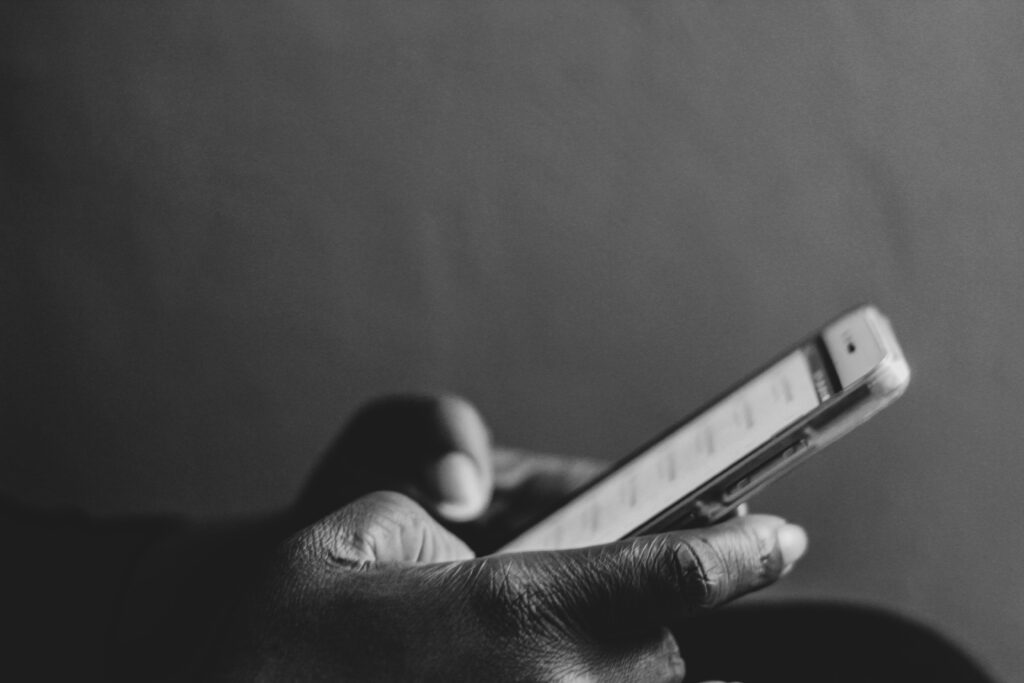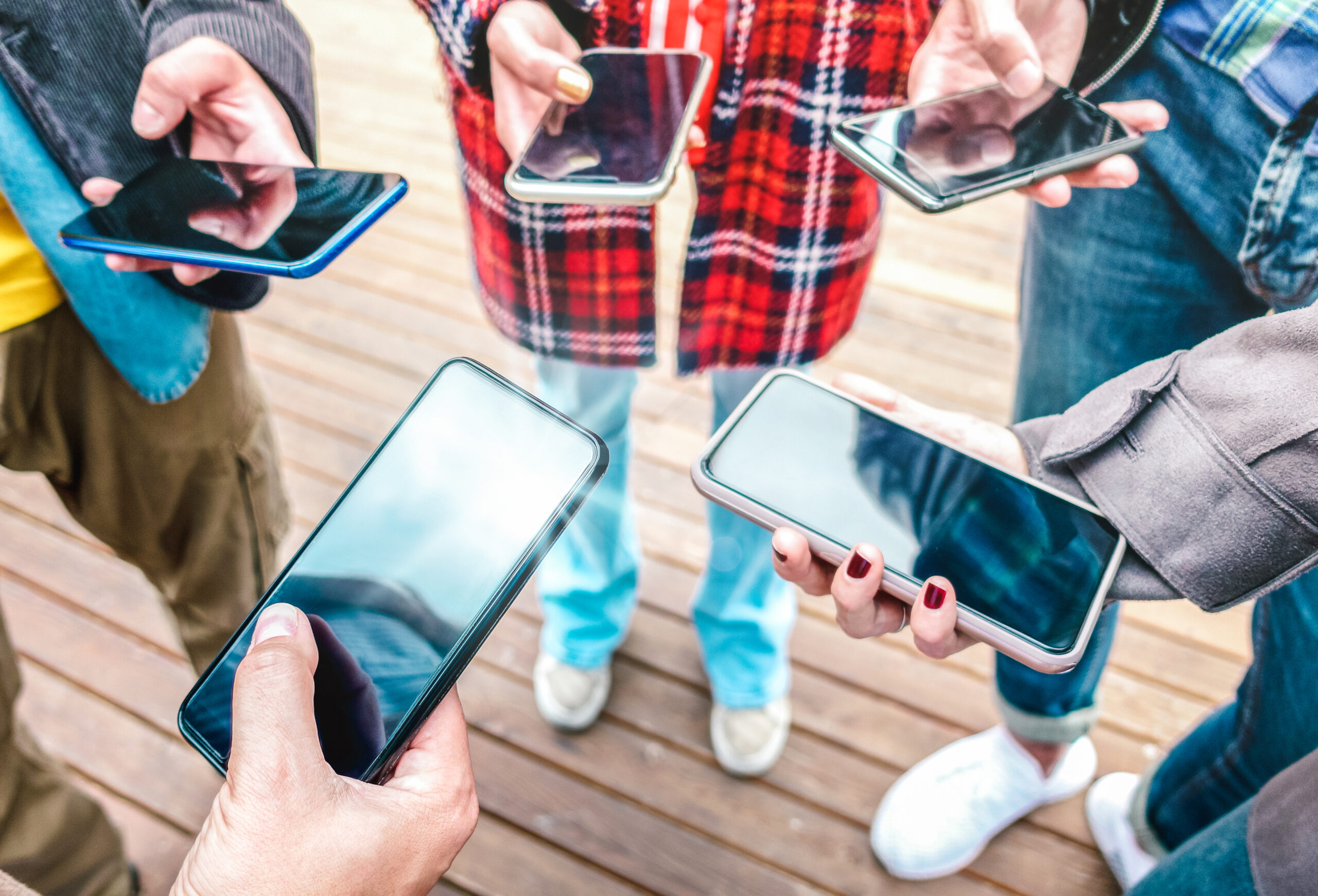In today’s digital world, smartphones have transformed from mere gadgets into essential lifelines. They keep us connected, informed, and entertained, serving as our gateway to almost everything—from instant communication and endless information to a virtual space that feels like home. But as these devices nestle deeper into our daily lives, a growing question arises: When does helpful convenience cross into unhealthy attachment?
Phone addiction is more than a buzzword; it’s a reality for millions who find themselves checking their screens constantly, craving notifications, and feeling anxious without their devices. Could the device that connects us to the world be isolating us from it at the same time? In this article, we’ll explore the surprising psychology behind our digital dependency, the signs it may be affecting us, and practical ways to regain balance.
What Is Phone Addiction and Why Does It Happen?
Phone addiction, often referred to as “nomophobia” (the fear of being without a mobile phone), is characterized by excessive and compulsive use of smartphones, leading to significant interference with daily life, relationships, and responsibilities. This behavioral addiction shares similarities with other compulsive behaviors, such as gambling, where individuals experience a loss of control over their actions despite negative consequences.
The underlying mechanism of phone addiction is closely linked to the brain’s reward system, particularly the neurotransmitter dopamine. Dopamine plays a crucial role in motivating behavior by providing pleasurable sensations when we engage in rewarding activities. Smartphone use, especially interactions on social media, triggers the release of dopamine, reinforcing the behavior and creating a cycle of craving and reward. As noted by psychiatrist Anna Lembke, “That’s the hallmark of an addictive drug. It just intrinsically draws people in.”
Research has shown that notifications and social interactions via smartphones activate the brain’s reward pathways, leading to repeated engagement. A study published in the journal Frontiers in Psychiatry highlights that problematic cell-phone use has been associated with personality variables such as extraversion, neuroticism, and impulsivity, as well as psychiatric comorbidities like anxiety and depression.
The design of smartphones and applications also contributes to their addictive potential. Features like infinite scrolling and variable rewards are intentionally implemented to keep users engaged. Tristan Harris, a former Google design ethicist, pointed out that “services like Facebook and YouTube leverage our attention and engagement to sell ads or otherwise attract funding. It’s happening not by accident, but by design.”
Recognizing the Signs of Problematic Phone Use

Recognizing the signs of problematic phone use is essential for understanding and addressing potential addiction. Individuals may experience a range of symptoms, including:
- Preoccupation with the phone: Constantly thinking about or using the device, even during important tasks.
- Anxiety without access: Feeling anxious or disoriented when the phone is not nearby.
- Excessive use: Spending an inordinate amount of time on the phone, often at the expense of other activities.
- Negative emotions upon restriction: Experiencing irritability or distress when phone usage is limited.
These behaviors can lead to significant disruptions in daily life, affecting personal relationships, work, and overall well-being. A study published in BMC Psychiatry found that approximately 23% of children and young people exhibited problematic smartphone use, which was associated with increased odds of depression, anxiety, and poor sleep quality.
Additionally, the phenomenon of “ringxiety”—the false sensation of hearing a phone ring or feeling it vibrate when it hasn’t—has been identified as a symptom of phone addiction.
Impact of Phone Addiction on Daily Life

Excessive smartphone use, often termed “phone addiction,” can significantly disrupt various aspects of daily life. Research indicates that individuals with problematic smartphone use may experience increased social isolation, diminished self-confidence, and heightened levels of depression and anxiety.
A study published in Frontiers in Psychiatry found that problematic smartphone use is negatively associated with young adults’ psychosocial well-being, with time spent using smartphones influencing mental health.
The pervasive nature of smartphones can lead to constant distractions, adversely affecting productivity and concentration. This constant connectivity often results in sleep disturbances, as individuals may find it challenging to disconnect from their devices, leading to poor sleep quality and associated health issues.
Physical health is also at risk; prolonged smartphone use can cause eye strain, headaches, and musculoskeletal problems due to poor posture. Moreover, the overuse of smartphones can interfere with personal relationships, as face-to-face interactions may be neglected in favor of virtual communication, leading to weakened social bonds and increased feelings of loneliness.
In severe cases, phone addiction has been linked to more serious mental health concerns. A longitudinal study published in BMC Public Health found that mobile phone addiction during the COVID-19 quarantine period could directly predict suicidality in adolescents within the subsequent five months, even after controlling for depression and daytime sleepiness.
When to Seek Professional Help
Recognizing when to seek professional help for phone addiction is crucial, especially when self-regulation efforts prove insufficient. If excessive phone use significantly disrupts daily life, relationships, or mental health, consulting a mental health professional is advisable. Therapies such as Cognitive Behavioral Therapy (CBT) have shown effectiveness in addressing behavioral addictions, including phone addiction. CBT helps individuals identify and modify negative thought patterns and behaviors associated with excessive phone use.
Additionally, support groups like Internet and Tech Addiction Anonymous offer communal support and shared experiences, which can be beneficial in overcoming phone addiction.
Recognizing the need for professional assistance is a proactive step toward regaining control and fostering a healthier relationship with technology.
Reconnect with Life: Simple Steps to Break Free from Your Phone

Excessive smartphone use can disrupt daily life, affecting productivity, relationships, and mental well-being. To regain control over your phone usage, consider implementing the following strategies:
1. Set Clear Boundaries
Establish specific times and places where phone use is limited or prohibited. For instance, designate the dinner table or bedroom as phone-free zones to encourage face-to-face interactions and improve sleep quality.
2. Monitor and Limit Screen Time
Utilize built-in features or third-party apps to track your screen time. Setting daily limits for app usage can help you become more aware of your habits and reduce unnecessary phone use.
3. Turn Off Non-Essential Notifications
Disable notifications for apps that are not crucial. This reduces distractions and the compulsion to check your phone frequently. By minimizing interruptions, you can focus better on tasks at hand.
4. Engage in Offline Activities
Rediscover hobbies and activities that don’t involve screens, such as reading, exercising, or spending time outdoors. Engaging in offline pursuits can provide fulfillment and reduce the urge to reach for your phone out of boredom.
5. Implement the Pomodoro Technique
Adopt time management methods like the Pomodoro Technique, which involves working for a set period (e.g., 25 minutes) followed by a short break. This structure can help you stay focused and reduce the temptation to check your phone during work sessions.
6. Utilize Digital Well-being Tools
Many smartphones offer features that monitor and limit usage. For example, Apple’s Screen Time and Android’s Digital Wellbeing provide insights into your habits and allow you to set restrictions on app usage.
7. Seek Professional Support if Needed
If self-imposed measures aren’t effective, consider seeking help from a mental health professional. Therapies such as cognitive-behavioral therapy (CBT) have been shown to assist individuals in managing and overcoming behavioral addictions, including problematic phone use.
Reclaiming Control Over Technology
Breaking free from phone addiction is not merely about cutting down screen time; it’s about reclaiming control over your attention, time, and overall well-being. Recognizing the signs of problematic phone use and understanding its impact on your daily life are crucial steps toward change. By implementing practical strategies—like setting boundaries, engaging in offline activities, and seeking professional help when needed—you can foster a healthier relationship with your smartphone.
Remember, technology is a tool designed to enhance our lives, not control them. By taking conscious steps to manage your phone usage, you’re investing in better mental health, stronger relationships, and a more mindful existence. It’s about finding balance in a digitally connected world and ensuring that you’re present for the moments that truly matter.


